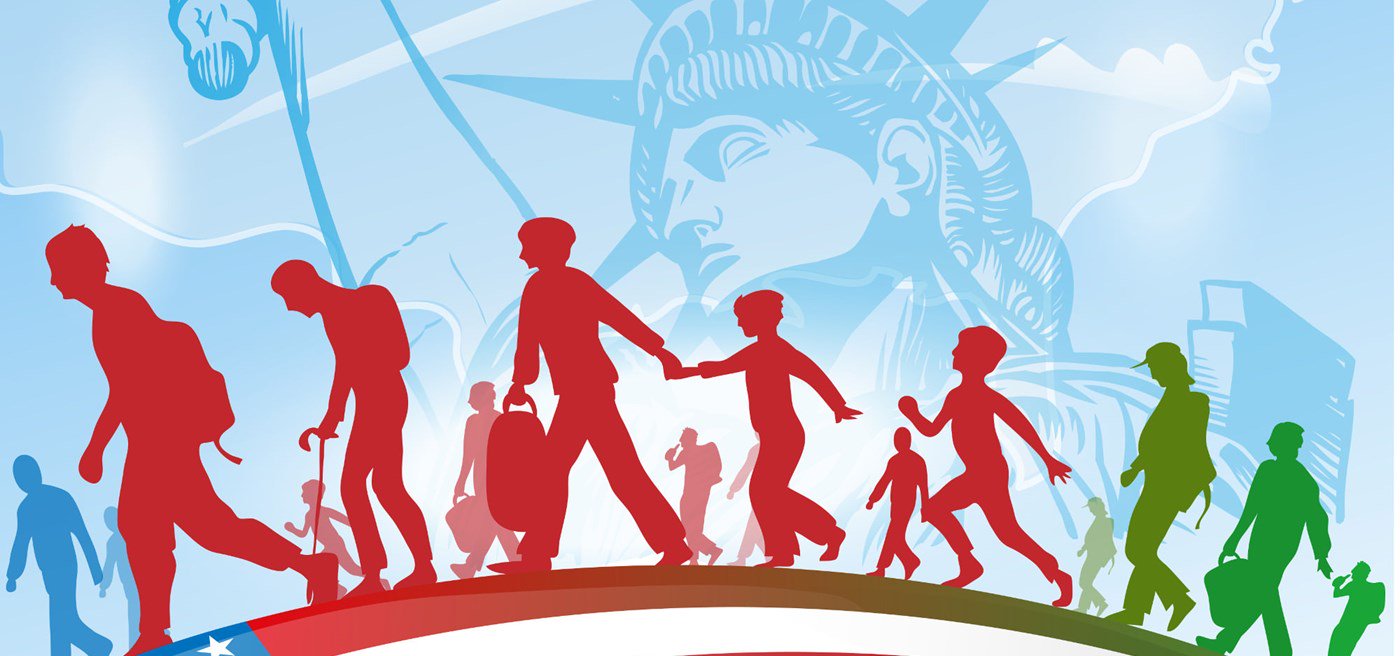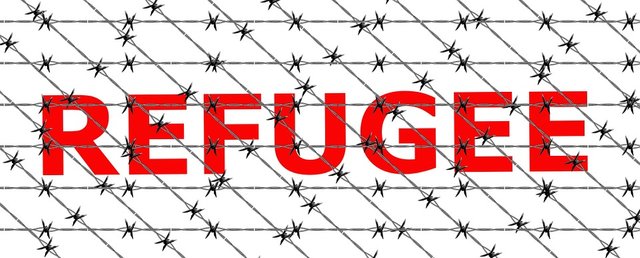Is immigration really beneficial for countries?

Migration is a process of human displacement that exists even before borders, it is a form of global stabilization in which people go to the place where they can find better living conditions.
Currently around 3.3% of the total world population is considered an immigrant, although this depends heavily on the country and local legislation, technically being able to be considered as immigrants 100% of the world population.
Having this brief introducing on the table, it is clear that nobody, absolutely nobody in the world, is simply opposed to immigration, some are opposed to illegal immigration and others to the massive (even if it is legal), I believe that both are problematic.
Immigration probably never ceases to be necessary, and it is quite important for the cultural development of the whole world, but this does not mean that every type and any number of immigrants always make the nation well-being.
Illegal immigration
The problem of illegal immigration is in its own name, it is illegal, if these people cannot meet even the requirements necessary to enter the country respecting the laws and local culture, along with everything that this represents, what makes us to think that they will respect the other laws or that they will really adapt to the native culture? Absolutely nothing.
Illegal immigrants also often have "unforeseen" benefits, such as the fact that they do not have labor legislation, which gives them more freedom when it comes to finding work and makes them many times a better option for employers, with respect to the local workers.
Illegal immigration exists in almost every country in the world, and usually it is not a big problem until it becomes massive.
Mass immigration

Mass immigration is, in my opinion, one of the biggest problems for a society, because it represents an anti-natural form of modern migration.
Mass immigration is only triggered by a crisis or a serious and sudden decline in the quality of life of the people of a nation or a region, usually with the action or intervention of a third party.
The Arab Spring represents, in the first instance, as a national crisis in Tunisia happened to become a "revolutionary" movement in the whole region, and added, with the intervention of a third party (NATO), a critical case of immigration was caused and massive exodus of the local population to Europe.
This immigration leads to a great impact and cultural change in the population that receives most of the immigrants, leading to different clashes between both parties, denial of adaptation by the new residents, and the subsequent replacement of the population.
To explain why low-level immigration is good, and why massive immigration is catastrophic, I'll put the following example.
Imagine that I am a Venezuelan citizen, tired of the local socialist regime, so I decide to make a trip to the United States to live and start a new life.
It is likely that I will have a lower standard of living than that of the Americans, and it will be very easy for me to do jobs that they do not want to do, since there is not a lot of Venezuelan population in the United States, it is also very likely that I will have to adapt to the local culture to get a job and get me a life, friends, and relationships.
When a single person goes to another country, this person has to adapt to the local culture, making possible the coexistence between a stranger (wherever he may be) and a new society.
But on the contrary, if I am not the only Venezuelan traveling to the United States, but rather it is a mass exodus of thousands or tens of thousands of Venezuelans traveling there, what will happen is that people will not have to relate to Americans, nor will they adapt to the culture of the new country, what will happen is that these new people will form ghettos and refuse to change their lifestyle. Creating a total contrast between two areas of the same country.
This ends up being a problem for both groups, because the legislation, customs and culture of the new country is not the same as that of the country of origin, which generates hostile confrontations between both populations.
The areas most densely populated by these immigrants will become a small sample of what their country of origin used to be, both in the good and in the bad, creating an outbreak of problems that the local society is not used to dealing with.
Conclusion
Immigration is the fruit of many of the successes of Western civilization, the last two great powers of the West; The United Kingdom and the United States benefited greatly from their ability to capture immigration and "steal" intelligence, labor, and the best of human resources from many other countries. Immigration is good, and leaving it altogether is a serious error, which can only be committed by a nation that is coarse and irremediably backward like North Korea. However, this does not mean that unrestrained and excessive immigration should be given free rein that ends up being totally negative for the objectives of the nation, and that in addition, harms even more than it benefits the two populations involved.
I think that the biggest problem that people can have when dealing with the problem of immigration, is to believe that it is left or right to accept or reject immigration, to lock themselves in a stereotype of how they should think, and not be truly free to analyze and see how much they can harm or benefit the entry of immigrants to a nation. Politicians often use immigration and immigrants to gain votes and benefit from the growing population, but this does not really mean that they care in the least about these people's lives, it just means that they try to take advantage and squeeze them to win votes as much as they can.
In a reductionist way it could be said that, while social and economic indicators are rising in a country, immigration must be reduced, while if on the other hand the social and economic indicators are in red, the country urgently needs immigrants.
But as in all my other publications, this is only my opinion, which is not exempt from biases, and is based on my beliefs and the information I possess, therefore, is subject to discussion, criticism, and denial . If you have a different opinion, or you agree with me, do not forget to leave a comment and let me know.
@originalworks
The @OriginalWorks bot has determined this post by @vieira to be original material and upvoted it!
To call @OriginalWorks, simply reply to any post with @originalworks or !originalworks in your message!
The simplest answer is what Doug Casey said. Abolish welfare and get rid of public property. Then the immigration would be the best thing ever. Look at a place like Singapore for an example. The place is bloody expensive and there really aren't any welfare stuff for immigrants AFAIK.
Exactly, recently I read a phrase that said something like this: "xenophobia does not begin when migrants come to compete for jobs, but begins when migrants compete for state subsidies."
The thing is immigration policies is determined by nation-states which have a monopoly on land and property in a given region. The people of South Brazil for example, in the states of Santa Catarina, Rio Grande do Sul, and Paraná, have different cultural and economic concerns than those in other regions of the country so they would have different requirements when it comes to immigrants and migration. The same in the US where in the Southwest it was Spanish and then Mexican land for hundreds of years yet people still want to have national controls on immigration there based on the Anglo-American views of those from the eastern seaboard.
So in essence, the whole immigration problem is out of wack until the State gets out of peoples lives and local autonomy returns.
Exact. The main problems of immigration today have occurred in Europe and the United States, two places where a central body has an exacerbatedly large power and are not heard or interested in the objectives of the local population, call this European Union or Federal Government of the US
I believe that both in a system where the state does not exist in the absolute, or in one in which it is small enough, national and/or regional cultures must remain almost intact, because it is something natural in the model and way of life human, I do not raise more state restrictions, we could certainly say that if the State did not exist, or was sufficiently small, there would be no restrictions on immigration, but there would also be no spontaneous waves of mass immigration, and illegal immigration would cease to exist, so that in itself the whole problem would be null.
I believe that regionalism is a first step to solve precisely the problems that you mentioned both in Brazil and in the United States, but in both ways immigration is controlled, either by the State or by the local population.
I share this vision, in fact, I personally consider myself a confederalist libertarian, and I promote this model to be re-adopted in the future by the Venezuelan people, in line with what was raised by Francisco de Miranda (among other illustrious Venezuelan proceedings), the Venezuelan Declaration of Independence (whose spirit and letter was confederal) and the Venezuelan Constitution of 1811 (whose model is confederal).
These are all things that the ordinary Venezuelans not usually know, but I consider may be useful to provide greater stability whenever applied in line with the ideal of limited government.
I support that, although achieving a liberal and limited government in Venezuela is a greater feat than independence.
I think that as much as possible for the near future will be a slight "economic freedom" but with the permanent and insistent state intervention. Of course, after the government be renewed.
I understand your skepticism. I understand that nothing is guaranteed, however, we do not lose anything with trying.
Something that would be good to emphasize is that today in Venezuela libertarianism and classical liberalism is growing silently. The crisis situation gives us the opportunity to explain with analogies to many people how the economy works and how a good government should act. In addition, many groups (libertarian and non-libertarian) outside the opposition parties (who share the old anti-values that Chavismo has amplified) have placed a growing emphasis on meritocracy.
What we are aiming at is the rise of a new political and intellectual class that is well-formed and defends the ideal of limited government, the market economy, etc.
The most complex thing would be to return to the model of confederal government, which would imply recognizing the independence of each of the states that make up Venezuela. It is not impossible, in addition, we have the bases to explain that this was the original country project that we sadly abandon. However, it is what I see more uphill.
For now, the priority is to get out of tyranny, return to a republican and democratic system and avoid more deaths, however, we will not rest.
As with almost everything in life, the point is in the balance. As you pointed our with a superb example, some immigration is beneficial for everybody, while mass immigration represent a problem.
I would just like to emphasize that the level of problem that mass immigration causes depends on the cultural difference between the immigrants and the natives. For example, if Irish people would massively emigrate to United States at some point, that wouln't cause as serious problem as if Nigerian people would massively emigrate to Poland, or vice versa.
Informative post thanks for the sharing.
nice post please vote my comment, because your vote is very valuable to me